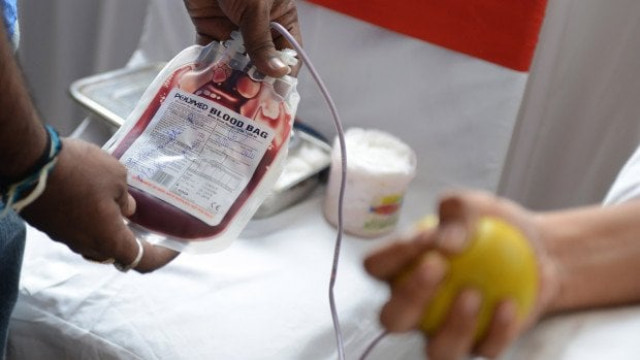Hay fever season: Health experts advise public to take precautions
Indoor, outdoor allergens can cause inside of nose to swell

PHOTO: AFP
Dr Wasim Khawaja at the Pakistan Institute of Medical Sciences (Pims) warned that allergic rhinitis, which often precedes the development of asthma, happens when one breathes in something to which one is allergic. This causes the inside of the nose to swell.
He added that allergic rhinitis was a symptomatic disorder of the nose and is characterised by nasal symptoms such as a runny nose (rhinorrhoea), sneezing, nasal blockage or itching of the nose and it is often associated with ocular symptoms.
Dr Khawaja explained that symptoms of hay fever are not limited to the physical effects on the nose and eyes but also involve adverse consequences to quality of life, including psychological well-being and the ability to learn and process cognitive input.
Meanwhile, Dr Sharif Astori at the Polyclinic highlighted that allergic rhinitis reduces learning ability in children and that 88 per cent of paediatric AR patients have sleep disorders.
He added that hay fever is triggered by allergens which can be found both outdoors and indoors.
“When allergic rhinitis is caused by outdoor allergens such as mould, trees, grass and weed pollens - it is often referred to as seasonal allergies, or hay fever,” Dr Astori explained. He added that allergic rhinitis may also be triggered by allergens found at home such as animal dander, indoor mould, or dust mites.
He further said that there were a number of medical interventions for the fever including non-sedative antihistamines, intranasal corticosteroids, and immunotherapy for adults and children.
According to available data, mixed cases of rhinitis and asthma affects around 24.86 per cent of the population while allergic rhinitis alone affects 24.01 per cent of people in the Punjab.
In Khyber-Pakhtunkhwa, mixed cases of rhinitis and asthma afflict 21.89 per cent of people while bronchial asthma affects 26.69 per cent of people.
In Sindh, allergic rhinitis was on top, impacting 27.92 per cent of people.
Published in The Express Tribune, June 30th, 2017.


















COMMENTS
Comments are moderated and generally will be posted if they are on-topic and not abusive.
For more information, please see our Comments FAQ